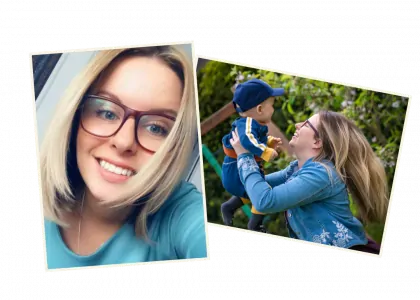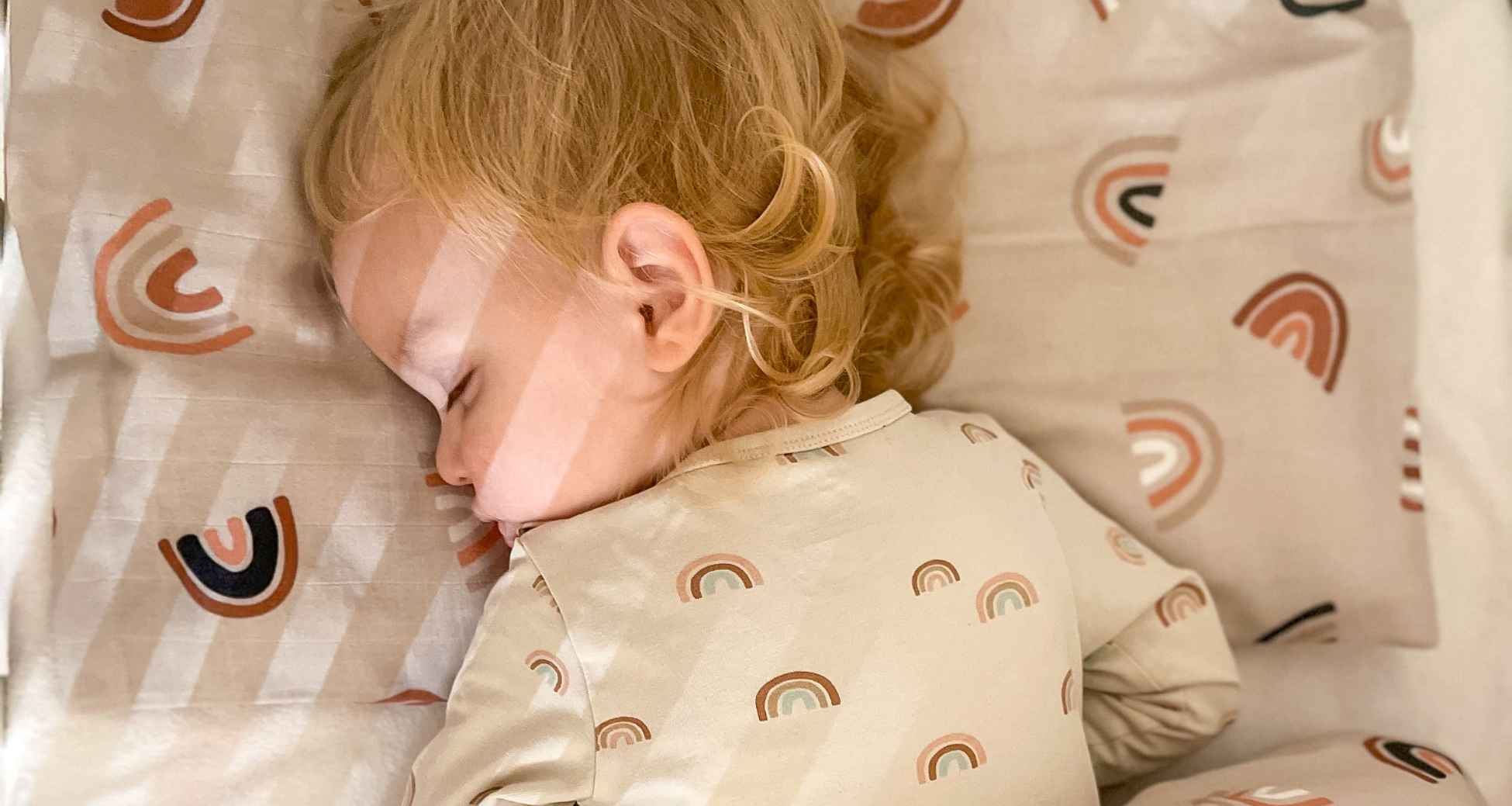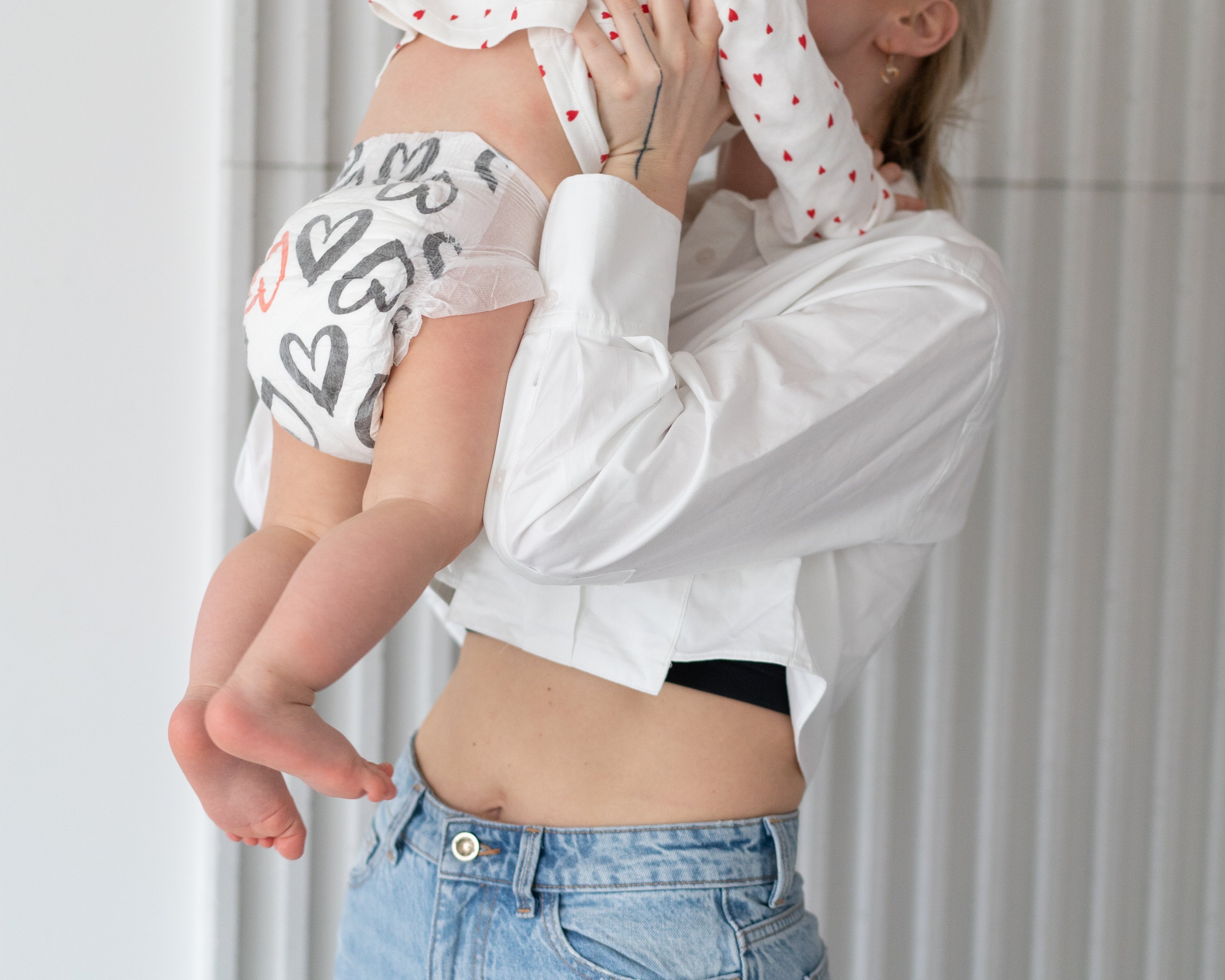A baby must learn to self-soothe. And he has to sleep in a crib. Anna Růžičková, a sleep consultant for children under the age of four, disproved these and other myths. In the follow-up conversation, we also talked about sleep training and the possibilities of how to help children sleep.
What do you think are the most common myths surrounding baby sleep?
There are so many myths that I don't even know where to start. I think that the most common myth is that a baby must sleep in a crib, otherwise it will be too dependent on the parents and they won't be able to move it there later. At the same time, we are a dependent species, we depend on each other and regulate our emotions with each other. Children need to connect with us safely so that they can become independent later. So don't worry, no pampering really works with small children. The moment you want to make the move, you do it, and it doesn't matter if it's today or six months from now, it won't be harder later, it'll be the same.
Another very common sleep myth, which is spread mainly by supporters of sleep training, is that if we do not teach the child to fall asleep independently without our help, then he will not be able to connect his sleep cycles and will never sleep through the night. This is very stupid! Every child has to mature in order to connect sleep cycles, some can do it right away, others maybe after a year. Parents often worry about their children's short daytime naps, but falling asleep independently without parental support is not the solution. Children, on the other hand, need our help with the transition to the next cycle so that they can manage it on their own over time. This is how children work, they need to repeat everything a thousand times, see, feel, in order to master it by themselves. All children will one day fall asleep and sleep without your help, and you will still remember it fondly. Because life is short and no one looks back on their life saying that they slept, carried, cuddled and loved their children too much.
You mentioned sleep training. Does it work? What are its advantages and disadvantages?
Of course it works somehow, otherwise there wouldn't be so many people in the world doing it. But it is about what we imagine under the term function. It does not mean that the child will sleep through the night without waking up. But for some children, it can really work in such a way that they stop signaling their needs — if they wake up, they won't call their parents because they know after previous training that the parent wouldn't come anyway. Canadian developmental psychologist Gordon Neufeld did research on the sleep of infants after sleep training between the ages of 6 and 12 months. In 42%, he found that sleep training had no effect on nighttime sleep at all. There was no improvement and fewer awakenings.
Sleep training is not a long-term solution because you don't go deep, you don't address the cause of why sleep is the way it is. It does not account for regressions, spurts, illnesses, developmental milestones, teething or separation anxiety. Babies who have been sleep trained still go through all the normal sleep problems like others their age. But if they have learned not to signal, then many of them will lie awake in their cribs and not call their parents. Every time a child goes through a regression, anxiety, developmental change, the parent may need to repeat the training. Sleep training is supposed to be a shortcut for parents, but remember that nothing in parenting is a quick fix. We are dealing with unique human beings. Would we like to call for the nearness of our loved one and he did not come? I think it clearly follows that I don't see any advantages. We have no direct evidence that sleep training is harmful, but thanks to the work of developmental psychologists, we have plenty of indirect evidence.
There are really a lot of sleep problems that parents encounter. I will mention, for example, waking up every hour, falling asleep for a long time, waking up at night, getting up early in the morning... What do you think parents struggle with the most?
Most often, I encounter a lengthy falling asleep. But it is caused by the assumption that the child has to go to bed on time or that once we enter the bedroom, we cannot come out after all. This is not the case, and there is a simple advice: If you do not put the child to sleep within thirty minutes, go do something else, play, dance, read a book, and in another fifteen or thirty minutes, try to put the child to sleep again. It is important to be calm during sleep, because this is the moment when again how you feel is reflected in the feelings of the baby. If you are frustrated, nervous and the like, then the red light comes on for the child and he says to himself: I will definitely not sleep now, because something is wrong with mommy, I am not safe. The moment parents realize all this, they often start taking turns when putting to sleep and the whole family is more at peace. Such realizations help a lot and bring relief.
Can we help small children with sleep in any way? For example, are there any herbs, homeopathy ... ?
I am not a supporter of herbs, homeopathics, syrups and the like to improve sleep. If the child doesn't have something prescribed directly by the doctor, then I wouldn't go into anything like that, because again, it won't solve the cause of the problem, if there is one. As long as the baby is breastfeeding, it is not good to overpower the smell of the milk with anything else. It is also not recommended to use any scented candles. What is great and can be used in the every evening ritual is a massage. I would recommend it to everyone. The baby relaxes, the mother also calms down, and this is important before falling asleep and sleeping. For such a massage, I recommend almond oil or a mixture of natural massage oils. Among other things, almond oil contains magnesium, which is very effective for restlessness, and it is also fragrance-free.
And finally - if you had to give parents of babies one piece of advice related to sleep, what would it be?
Be supportive of your child, follow his needs, don't be afraid to put him to sleep, carry him and cuddle him, and he will return it a million times over!

About Anna
Anna Růžičková is a sleep consultant for children under the age of four. She herself has a one-year-old son, Jakub. For the past year, she has been intensively studying children's sleep and at the same time helping parents, either via the @wellbabing Instagram account or through individual consultations.
She is currently writing her first book about sleep and likes to unwind on maternity leave by reading books or writing articles for parents.




